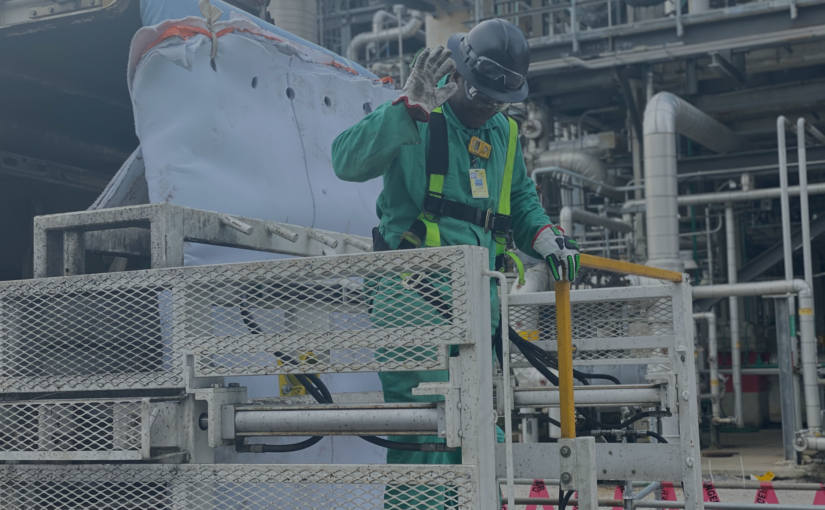
It’s a fact; environmental conservation is a growing trend. Today, more and more businesses are striving to adopt sustainable practices that will reduce waste and lower their carbon footprint. In line with this year’s Earth Day theme, adopting and investing in innovative solutions is vital for a greener future. One such groundbreaking (pun intended) approach that has revolutionized the commercial pipelining industry is trenchless technology, a technique championed by US Pipelining. Read on to see what the environmental benefits of trenchless pipelining are.
By eliminating the need for extensive excavation and reducing resource consumption, trenchless technology significantly impacts our planet’s well-being. Alongside other benefits, trenchless pipelining significantly minimizes the environmental impact that arises from traditional methods.
Read on and explore US Pipelining LLC’s commitment to delivering top-notch, eco-conscious solutions in the global fight against environmental degradation as we advance.
Environmental Concerns Surrounding Traditional “Dig & Relace” Methods
Traditional pipe restoration/replacement methods require extensive excavation, which, more often than not, results in deforestation, soil erosion, and the disruption of natural habitats. Another thing, these traditional methods use heavy machinery with high fossil fuel consumption rates. Which in turn, contribute to the release of greenhouse gases, further exacerbating the problem of climate change.
Everyone must be conscious of the need to protect and preserve environmental and natural resources in all facets of industry, including infrastructure development. Trenchless commercial pipelining is one way of being environmentally conscious, as it minimizes issues by utilizing existing access points such as manholes or basins, with advanced technologies that require little to no digging.
As a greener alternative to traditional pipelining practices, trenchless commercial pipelining preserves the surrounding environment. It also reduces the amount of waste generated from excess soil and debris. Lastly, it is efficient and cost-effective as it requires less labor and resources.
Trenchless Pipelining Techniques
By reducing the need for excavation, minimizing waste generation, and preventing soil erosion, trenchless commercial pipelining methods have a profoundly positive impact on environmental conservation. Key trenchless pipelining techniques that have innovatively revolutionized how infrastructure repairs and pipeline restoration are conducted include:
- Cured-in-place pipelining (CIPP): CIPP pipelining involves inserting a resin-impregnated liner into the damaged pipe. It is then cured in place using hot water, steam, or in some cases, ultraviolet light. It is a highly effective method for repairing and rehabilitating underground pipes without extensive excavation. Thus, this process is beneficial to the environment as it minimizes disruption to the surrounding environment and reduces the amount of waste generated. This is due to the existing pipe remaining in place and is reinforced by the new lining.
- Storm sewer pipelining: involves rehabilitating existing storm sewer systems with little to no excavation. This method is non-invasive and helps to prevent soil erosion and contamination. In essence, storm sewer pipelining efficiently manages excess water and averts the risk of flooding.
- Pressure pipelining: This is done by installing a new pipe within an existing one—thereby creating pressure plus minimizing the need for excavation.
Municipal Pipelining and Wastewater Pipeline Restoration
Trenchless municipal pipelining is beneficial as it addresses the pressing issue of aging and deteriorating sewage lines within urban environments. By employing advanced pipe relining techniques, municipalities can address the challenges of aging sewage lines. At the same time, it minimizes their ecological footprint and protects vital natural resources for future generations.
With pipe relining, municipalities can effectively restore their wastewater pipeline systems’ structural integrity and functionality without causing undue harm to the surrounding habitats, waterways, and green spaces. This innovative approach also reduces groundwater contamination, preventing sewage leaks and infiltration from compromised pipelines.
The adoption of trenchless technologies in municipal pipelining projects has led to substantial cost savings. This is due to the fact that it requires fewer resources and workforce compared to traditional methods. Additionally, the minimally invasive nature of commercial trenchless pipelining allows for preserving existing infrastructure, such as roads and sidewalks, which would otherwise need to be rebuilt following excavation-based repairs.
Trash Chute Lining for Improved Waste Management
Companies can significantly reduce their environmental impact while maintaining efficient operations by incorporating trash chute lining in waste management processes. Trash chute lining extends the lifespan of waste chutes, preventing leaks and spills that could contaminate the surrounding environment.
The combination of non-invasive pipelining and trash chute lining technology serves as an effective, eco-friendly solution for improved waste management—true to modern sustainability goals and need to limit the environmental footprint of businesses worldwide.
Embrace a Greener Future with Trenchless Pipelining By US Pipelining LLC
Gone are the days of disruptive excavations and lengthy repair times; instead, welcome a modernized approach that safeguards our planet’s resources while delivering unparalleled results. Embrace a greener future with trenchless pipelining by US Pipelining LLC, which is revolutionizing how to address infrastructure needs.
With state-of-the-art trenchless technology, we deliver exceptional quality and customer satisfaction. All the while promoting sustainable practices paving the way toward a greener, more sustainable future for generations to come. So if you’re looking to hear more about the environmental benefits of trenchless pipelining, feel free to call us at 1-800-504-6108 or fill out a contact form.